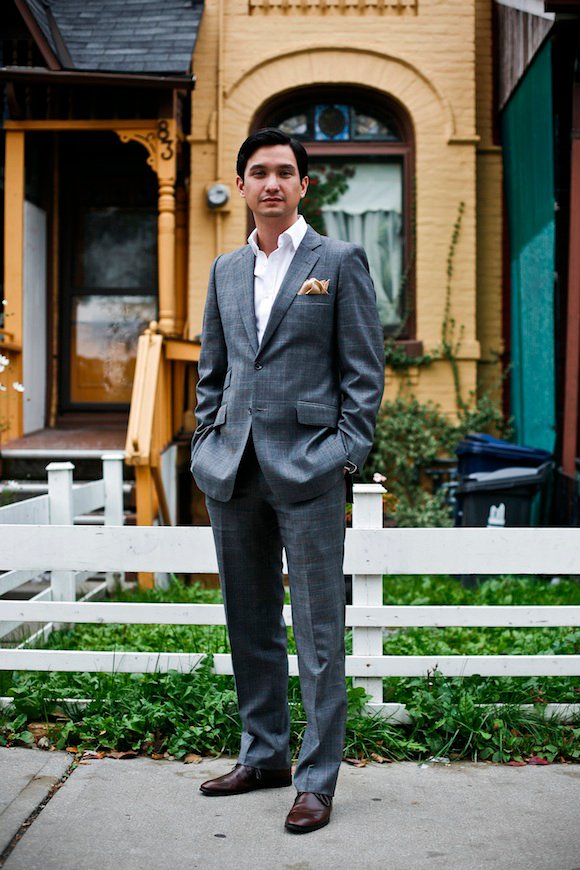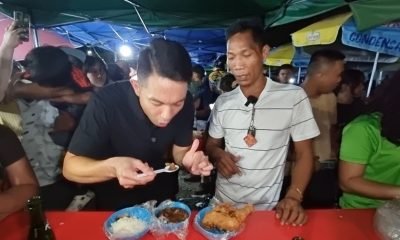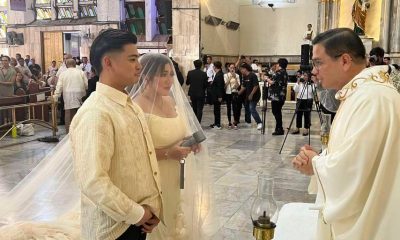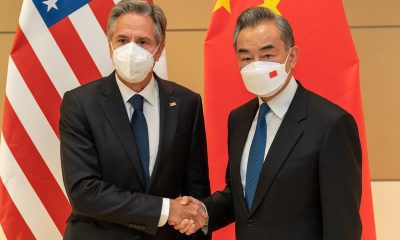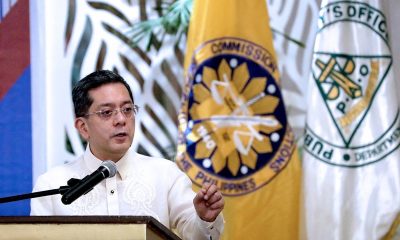Filipino-Canadian In Focus
Miguel Syjuco: Ilustrado
What would you do if you were a poor little rich boy whose only desire was to write—but you can’t—because you are “the burgis writer”, whom no one takes seriously, and your family pushes you to a life in politics, which you abhor? Well, up and leave, of course.
And that’s exactly what Miguel Syjuco did before he journeyed to become “author”, Man Asian Literary Prize awardee for Ilustrado and pride of the Philippines.
It was not an easy journey.
All he knew was Cebu. And of course, Canada.
He was 1 year old when he came to Canada. “During the Marcos era, my parents thought Canada was a good place to raise six children—for safety, for education, all that. We moved back [to Cebu] after Marcos was ousted. I must have been 11 years old.”
Thereafter, he left Cebu for New York (for his masters) and for Australia (for love and his PhD). In 2007, the Fil-Canadian citizen again found himself in Canada, near McGill in Montreal, where his fiancée and his daughter are studying.
He is thinking of staying for good.
“The more I live in Canada, the more I realize what a great country it is. It’s such a reasonable country, the lifestyle here is good, it’s multicultural. I’ve lived all over, and I feel the most comfortable here in Canada. They don’t see my color, they don’t see my background, they don’t see my last name. They just see me as a person,” he explained.
His last name
In Miguel’s mind, the Philippines will always be his home, but his old life—and name—were burdens too heavy to carry. “There’s always been preconceptions, there’s always been expectations and a lot of pressure.”
He explains, “In my past there has been a clash when my parents wanted me to enter politics.” He did not want to, and had a falling out with them.
Life was hard but fulfilling after that. “When I left the Philippines, tapos na yon (it was finished),” referring to the financial support he receives from his family.
Thus, Miguel sold bags on eBay, stocked shelves, painted apartments, acted in a B-movie and became a medical guinea pig. He said, “I had nothing to fall back on, and I wasn’t even speaking to my father for years. I needed to make rent, I had huge credit card bills.”
But one of those odd jobs—being a medical guinea pig—almost made him give up.
“I was half naked and I was thinking—do I really want to be a writer this badly? Why don’t I just go home?” It was one of the lowest points in his life.
But he kept at it.
“I have this philosophy that I’ll just do anything and everything—I will be ruthless—I won’t buy a house, we won’t get married yet, we won’t have children yet. We will put everything off until we’re able to achieve those things to get to the next level,” he said.
In the end, he got lucky.
He happily reports that his parents have come around, and saw that he is able to do something political and contribute in his own way, like his scathing commentary on Senator Tito Sotto “shedding crocodile tears in Parliament and plagiarizing speeches to bolster the case against reproductive rights” published in The New York Times.
Yes, his family is happy with his success. “The first thing they said [about the book], ‘You know it’s all very good. But next time you write a book, can you make it easier to understand?'” he chuckles. ” I think they saw parts of it as a tribute to our family background. They were a little bit worried about what my mom and dad would think. My mom of course is proud of anything I do. My dad’s a very busy guy, I don’t know if he’s read it but ultimately they support whatever I do. I mean it does help that the book has had some success. if it wasn’t a successful book and they read what I wrote maybe they’d be a little less inclined to be happy with it.”
Miguel in Miguel
Miguel Syjuco is a prominent character in Ilustrado, and Miguel admits he is his alter-ego, much like Rizal’s Crisostomo Ibarra (or Elias) in the novel Noli Me Tangere.
“I drew from my life, of course,” he said.
Like Rizal, Miguel resorted to hidden messages. But it was not the insulares or peninsulares that were the targets of his hidden messages, but his daughter. “I wanted to be able to give my side so if anything should ever happen to me, or if I’m never able to have that relationship with my daughter, then at least it’s written somewhere so that she could one day understand.” (Ed: Miguel and his daughter were able to fix their relationship and are spending time with each other as much as they can.)
In the book, Miguel’s present indeed intertwines with his past and snippets of old memories of the young Miguel as a “lost young man who didn’t understand himself or the world very well” left readers with a poignant pang.
“[The young Miguel is] still very much me. Writing is one of my attempts to try to find a little more of that understanding , not just who I am but also my place in the world, how I can contribute somehow. Not just as a novelist but someone who writes articles, stories, examining complicated situations and then turning them somehow into written words that will help other people understand it so together we can all work together in addressing those problems,” he said.
Problems like the Filipino identity
“There’s a sense of insecurity sometimes,” Miguel started when asked about the Filipino identity.
“I think partly because in the 1960’s, 1970’s, we had this post-colonial nationalism wherein we wanted to return to our pre-Hispanic roots, pre-American roots. But I think as we mature as a country, as a people, we’ll understand that we don’t have to go all the way back to the pre-colonial times. We can embrace everything that we are because it’s part of our history, part of who we are,” he said.
For him, the Philippine football team Azkals is the symbol of the Filipino. “They sort of exemplify an aspect that’s part of the best of what makes a Filipino. It’s a multicultural melting pot. That is what the Philippines is.”
He will soon be launching Manila Review, a broader discussion of Philippine arts and culture that includes the diaspora, with the end goal to expand the idea of what the Filipino is.
He explains, “As we grow into seeing ourselves as a global identity, as a diaspora, rather than just immigrants, rather than just balikbayans—of those who stay home, or people who betray the country by leaving—if we’re able to see ourselves clearly in the context of the rest of the world, then we’d be able to see ourselves with a little more honesty, with a little more pride.”
Such is his hope. With Ilustrado, that hope has been given wings.

